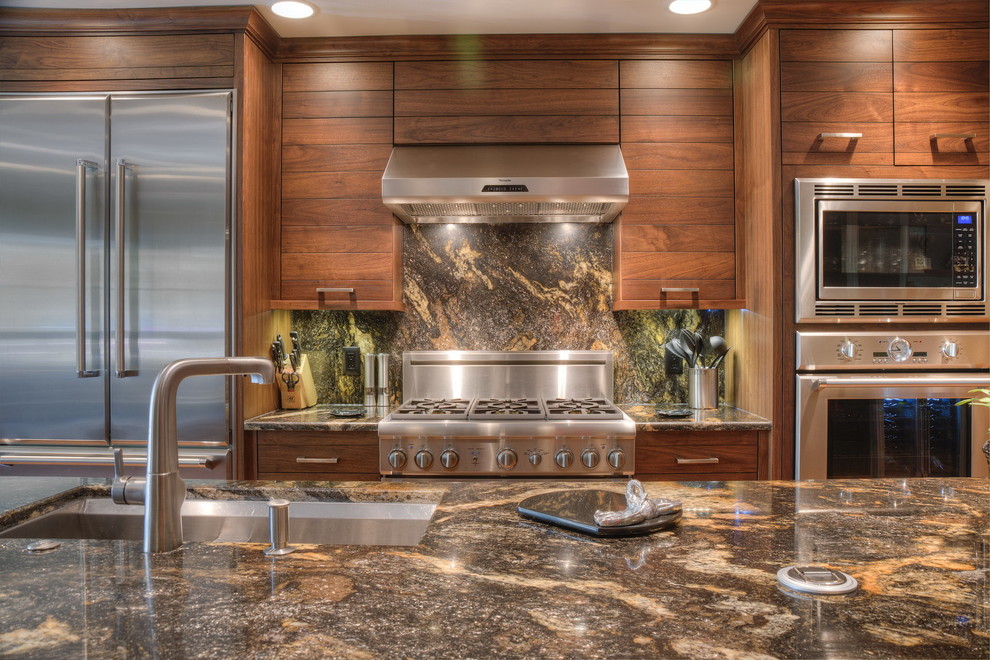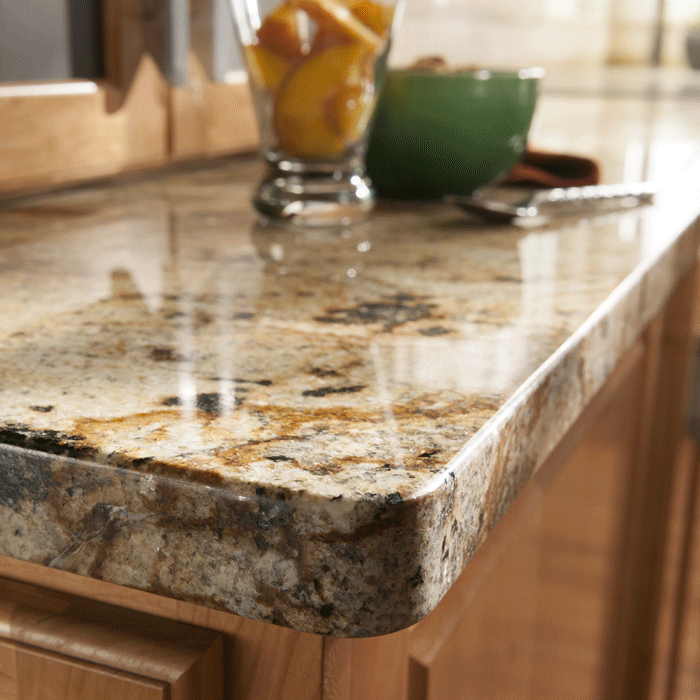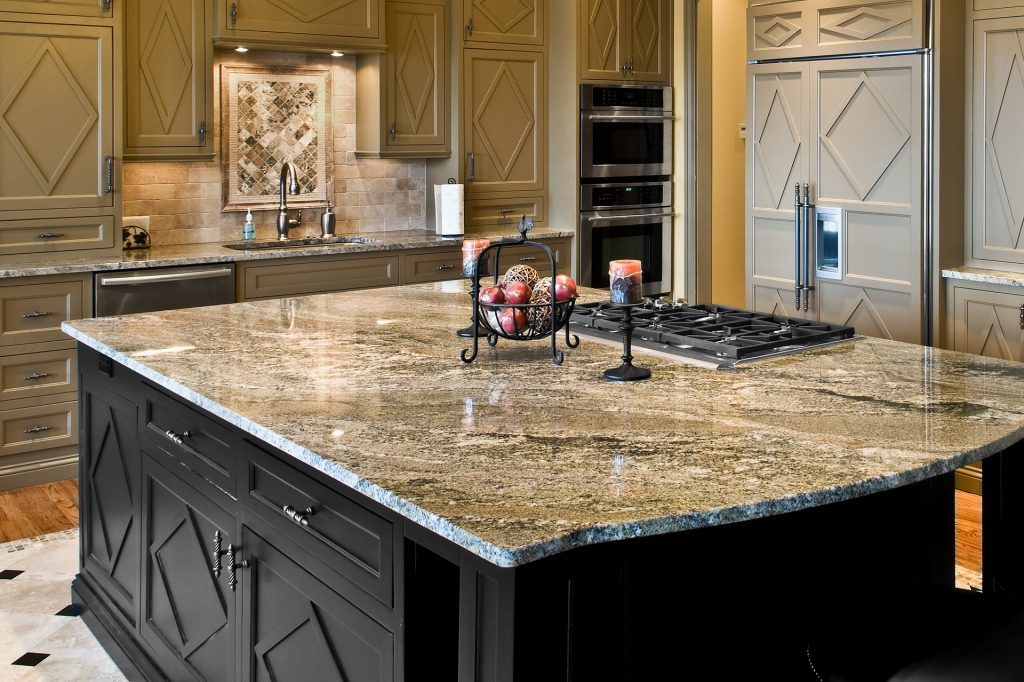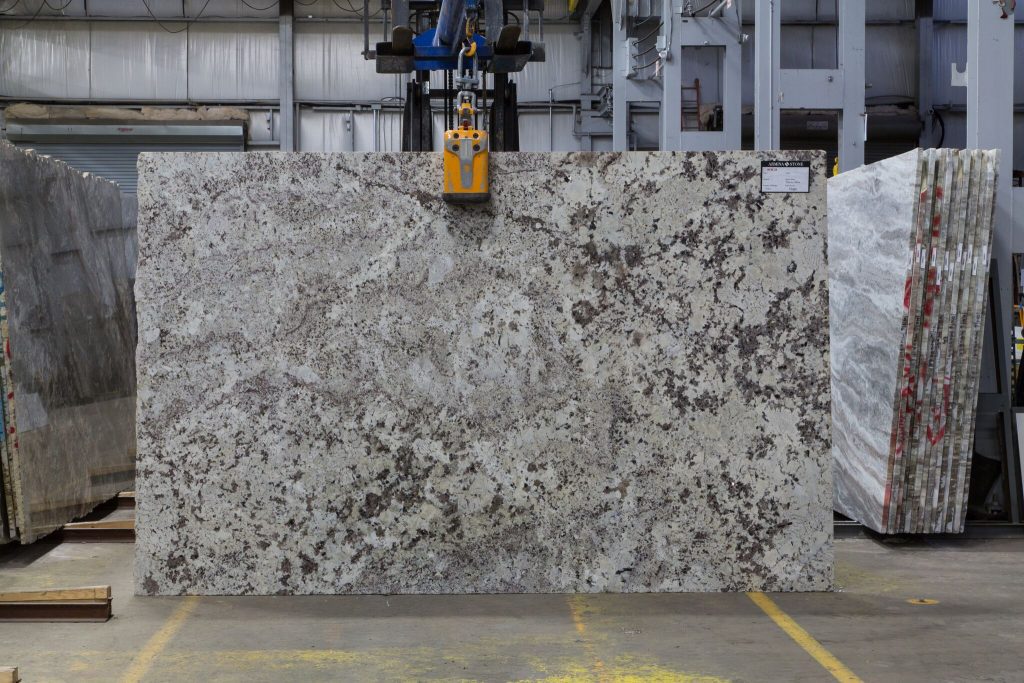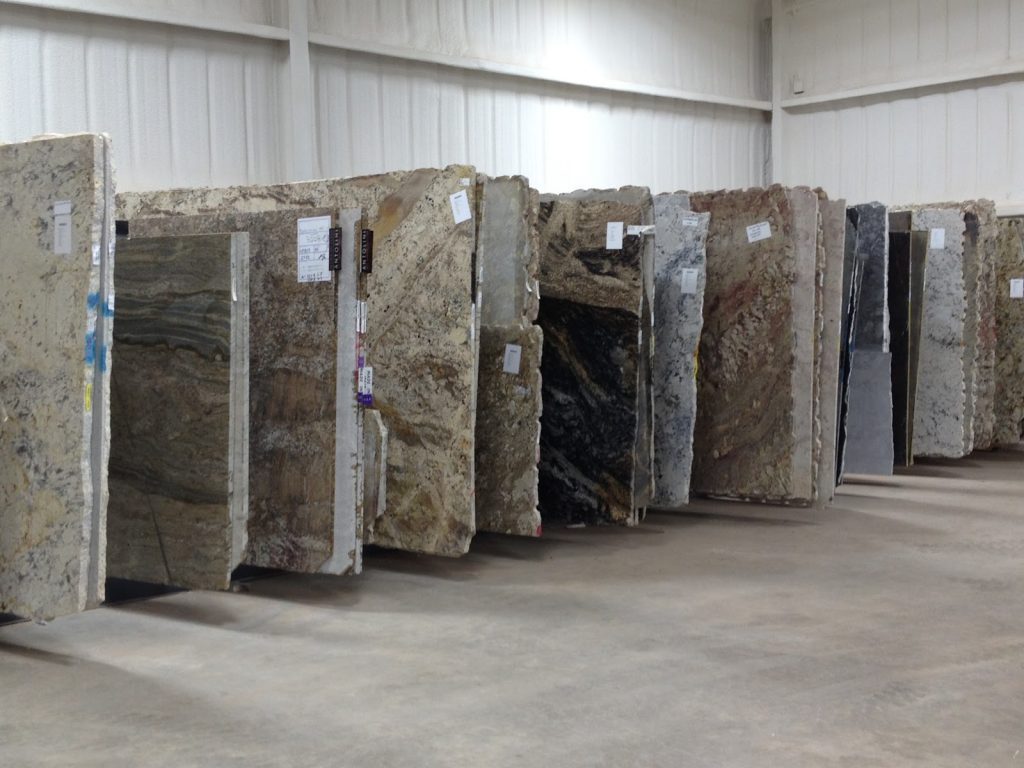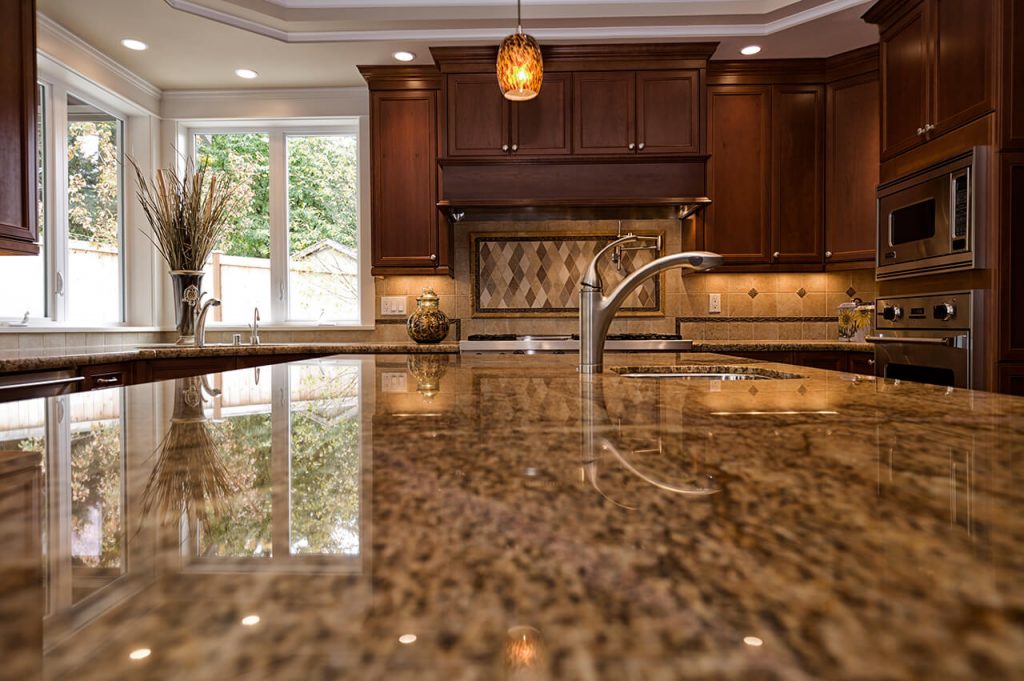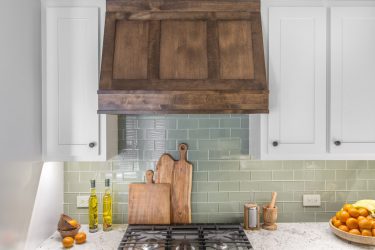
Photo Source
Choosing the right stone counter top is one of the biggest decisions you will make for your kitchen remodel. Not only will this be a big part of the budget, but it will also influence the design and longevity of the rest of the kitchen.
Both natural and engineered stone have their advantages, so it’s a good idea to compare the two before making your final decision.

Photo Source
Natural Stone
While there are many natural options available, granite is still one of the top picks, as it is recognized as the prominent high-end option and can help boost your home’s value. It’s also known for its unique appearance and the long-lasting durability that natural stone has to offer.
The natural minerals found in granite — including quartz, tourmaline, topaz, garnet and others– contribute to the beautiful natural flaws and irregularities we see in granite counter tops. No two slabs of granite are identical, allowing for your kitchen design to truly be one-of-a-kind (a big appeal to many homeowners). On the other hand, it can be difficult to match colors within your kitchen. Often times, a slab of granite will even appear to be a different color once it’s installed under your kitchen lights than it did when you first fell in love with it at the warehouse.
Aside from granite, other natural stone choices include:
Marble
Soapstone
Quartzite
Limestone
Slate

Photo Source
Engineered Stone
Because engineered stone is manufactured, it has a consistency that you won’t see in natural stone. This composite material is made of crushed stone (usually marble or quartz) that is bound together by an adhesive — most commonly polymer resin. Today’s engineered stone looks comparable to natural stone and offers other advantages that make it a stiff competitor.
Engineered Stone options include:
Quartz
Caesarstone
Cambria
Concetto
Silestone
Icestone (glass & cement)

Photo Source
Durability
The two surfaces have somewhat different levels of durability and strength. Both natural stone and engineered stone are very durable and easy to maintain, but engineered stone is somewhat harder and heavier than granite and very resistant to chipping or scratching.
Both options are easy to maintain and can be cleaned with mild cleaners. Granite, along with other natural stone, is more porous and susceptible to staining. Engineered stone, on the other hand, is non-porous and less likely to stain. This feature also means it is less likely to grow bacteria.

Photo Source
Cost
There is not a huge difference in price between mid-range natural granite and engineered stone. However, granite does hold its value better and can increase your home’ resale value if you plan on moving later on.

Photo Source
Overall, both natural stone and engineered stone are great options for your kitchen counters. Both are popular, come in a variety of styles, and are long lasting. While it’s hard to go wrong with either choice, it’s a good idea to work with a professional designer to select the perfect counter top material to fit the rest of your kitchen design and within your budget.
If you need assistance with your kitchen remodel, or would like to further discuss counter top options, Medford Remodeling would be happy to help! Contact us today for more information!
Warm Regards,
The Medford Remodeling Team

